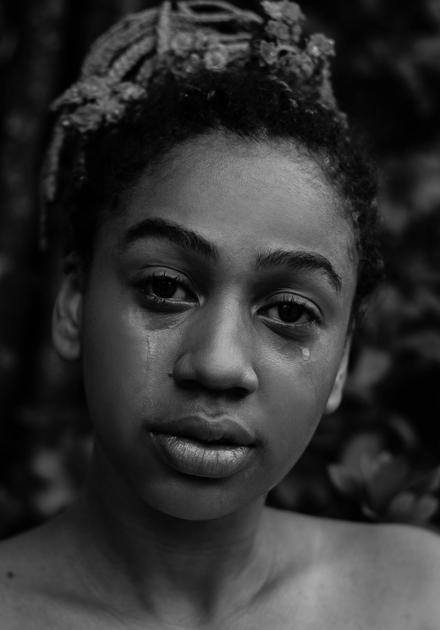Hair Loss in Women: Discover Hormonal Causes and Remedies
Hair loss in women can be deeply frustrating and disheartening. Many women experience this issue due to various hormonal changes that arise in their lives. Whether related to stress, pregnancy, or menopause, understanding the roots of hair loss can empower you. This article offers natural recovery tips to help regain your confidence and vitality.
Understanding the Hormonal Impact on Hair
Hair loss in women often hinges on hormonal changes. Understanding how hormones affect hair growth is vital. Hormones are powerful messengers in your body. They can trigger hair growth or, unfortunately, hair loss. Hormonal changes can occur due to various factors like puberty, pregnancy, menopause, or thyroid issues.
During these times, the body undergoes fluctuations which can impact the hair growth cycle. This is when women may notice more hair shedding than usual. Estrogen and progesterone levels drop during menopause, which can lead to thinning hair. Additionally, higher levels of androgens, such as testosterone, can also contribute to hair loss in women.
Common Hormonal Causes of Hair Loss
Several hormonal imbalances can contribute to hair loss:
- Polycystic Ovary Syndrome (PCOS): This condition can elevate androgen levels, leading to hair thinning.
- Thyroid Disorders: Both hypothyroidism and hyperthyroidism can cause hair loss due to hormonal imbalances.
- Menopause: The decrease in estrogen levels can trigger significant hair thinning.
- Pregnancy: Postpartum hair loss is common due to sudden hormonal shifts after childbirth.
- Stress: Prolonged stress can elevate cortisol levels, affecting hair growth.
Natural Remedies for Hair Health
Finding natural remedies can aid in hair recovery:
- Essential Oils: Oils such as rosemary and peppermint can stimulate hair follicles and promote growth.
- Herbal Supplements: Supplements like saw palmetto and ginseng may help restore hormonal balance.
- Scalp Massages: Regular massages can boost blood circulation in the scalp, promoting growth.
- Aloe Vera: This soothing plant can condition the scalp and may help with dandruff.
The Role of Diet in Hair Recovery
Your diet plays a crucial role in hair health. Consuming the right nutrients can help combat hair loss:
- Protein: Essential for hair structure. Include lean meats, fish, beans, and nuts in your diet.
- Omega-3 Fatty Acids: Found in fish like salmon, they nourish hair follicles.
- Vitamin D: Vital for hair growth, ensure you get enough sunlight or consider supplements.
- Iron: Important for preventing hair loss, include spinach, lentils, and quinoa in your meals.
Stress Management and Hair Loss
Stress can exacerbate hair loss. It’s crucial to manage stress levels effectively:
- Mindfulness and Meditation: These practices can substantially reduce stress and improve overall well-being.
- Regular Exercise: Physical activity releases endorphins and can help mitigate stress.
- Sufficient Sleep: Aiming for 7-9 hours of quality sleep can help your body recover.
Lifestyle Changes to Combat Hair Loss
Making slight adjustments can lead to significant improvements:
- Avoid Heat Styling: Limit the use of heat tools, as they can damage hair.
- Gentle Hair Care: Use soft hair ties and avoid tight hairstyles that pull at the roots.
- Stay Hydrated: Drinking enough water supports overall health, including hair health.
When to Seek Professional Help
If hair loss persists or worsens, it may be time to consult a professional:
- Dermatologist: A specialist can help identify the specific cause of hair loss.
- Endocrinologist: If hormonal imbalances are suspected, this specialist can perform necessary tests.
Understanding the Hair Growth Cycle
Understanding the hair growth cycle can provide insights into hair health:
- Anagen Phase: This is the active growth phase, lasting 2-7 years.
- Catagen Phase: The transitional phase lasts about 2-3 weeks, with hair follicles shedding.
- Telogen Phase: Resting phase lasts about 3 months, after which hair falls out.
The Importance of Self-Care for Hair
Self-care practices are critical to maintaining healthy hair:
- Regular Hair Trimming: Helps eliminate split ends and promotes healthy growth.
- Hydration: Using hydrating hair masks can restore moisture and shine.
- Positive Mindset: Keeping a positive perspective can help reduce stress, further supporting hair health.
Success Stories from Women Overcoming Hair Loss
Many women have faced hair loss but found effective solutions:
- Story of Hope: Jane, 34, started using essential oils and now enjoys healthy, fuller hair.
- Empowered Choices: Linda, 45, improved her diet and saw a significant change in her hair density.
- Mindfulness Journey: Sarah’s yoga practice not only reduced her stress but also improved her hair health remarkably.
If you’re feeling the weight of hair loss, remember that you are not alone. Many women have faced these challenges and have found ways to embrace their beauty, which starts from the inside out. It’s possible to regain confidence and strength by taking small yet impactful steps.
Feeling overwhelmed? See how many women are addressing this without heavy medications.
Your hair journey can be one of recovery and empowerment. Follow the methods that resonate with you, and remember that self-care is not just a luxury—it’s a necessity.
Keep believing that improvement is possible, just as many women have discovered. Embrace the journey, and take that first step today!













